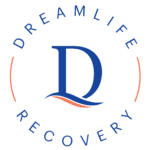Drug Rehab in Pennsylvania


Drug Addiction and Overdose in Pennsylvania
In 2018, the US reported an alarming 67,367 deaths from drug overdose—70% of which were opioid-related. Overall, 46,802 deaths occurred from an opioid-related overdose. Synthetic opioids such as fentanyl were involved in 28,400 overdose deaths while prescription opioids had a hand in 14,975. Heroin caused 14,996 deaths.
Since 2015, the abuse of prescription drugs and illicit substances has been on the rise in Pennsylvania, leading to more and more tragedy. In 2018, 4,415 Pennsylvanians lost their lives to a drug overdose. Opioids were responsible for 65% of the state’s overdose fatalities, accounting for almost 3,000 deaths.
Even when people do not overdose, their health can still be drastically affected by injection drug use (IDU). In PA, 25.6% of women and 23.8% of men living with HIV attribute their condition to IDU. With 1,088 newly diagnosed cases of HIV in 2017, it is no secret that IDU is harmful to the state’s residents.
How Pennsylvania Is Working Against Substance Abuse
The high numbers of drug-related diseases and deaths in their state thoroughly shook Pennsylvanians, calling them into action. Centers like drug rehab Pennsylvania are working tirelessly to offer programs that aid in counteracting the state’s growing substance abuse problem. In 2019, the Substance Abuse and Mental Health Services Administration (SAMHSA) states that 19,000 users were admitted to these centers — showing that those who are struggling want help and that the state is ready to offer it.
Pennsylvania has also implemented the Prescription Drug Monitoring Program (PDMP). This ensures that prescriptions for narcotics and other painkillers are handled securely and appropriately. This system is responsible helping the state keep track of filled prescriptions and their relevant information. The program prevents drug abuse while promoting safety. Additionally, healthcare providers have a “suspicious activity reporting tool” to use if they suspect that prescription substances are being abused.
Signs and Symptoms of Drug Abuse & Substance Addiction
It can be difficult to tell if your loved one is wrestling with addiction. Knowing what symptoms of substance abuse to look for can help save lives. If you can identify and encourage your loved ones to get help early on, the sooner they can achieve the healthy life they deserve. Some signs of addiction that affect the body physically include:
- Abnormal levels of perspiration
- Tooth decay
- Scratch marks and new scars
- Large pupils
- Random dizzy spells
- Insomnia
- Bad hygiene (greasy skin/hair, bad breath, generally unkempt)
- Incoherent speech
- Sudden drop or rise in energy levels
- Drastically altered appearance
Additionally, addiction can present itself through mental indicators. These signs include but are not limited to:
- Trouble with recall and memory
- Paranoia
- Depression and anxiety
- Severe shifts in mood
- Easily upset or quick to anger
- Uncharacteristically on edge
- Poor judgment
Treatment Options at Drug & Alcohol Rehab Facilities Near You
When it comes to treating substance abuse, it is important to have options that meet the needs of unique individuals. Thankfully, rehabilitation centers for drug addicts offer a variety of important therapies and approaches to getting each and every person on the road to long-lasting recovery. Valuable treatment options include:
- Detox centers
- Aftercare/Alumni services
- Residential treatment
- Outpatient treatment
- Standard Outpatient Programs (OP)
- Intensive Outpatient Programs (IOP)
- Partial Hospitalization Programs (PHP)
- Specialized treatment
- First responders programs
- Professional programs
- LGBTQI+ programs
- Therapy programs
- Trauma therapy programs
- Family therapy programs
Types of Therapy Offered in Rehabilitation Centers for Drug Addicts
Drug rehabs in Pennsylvania use various evidence-based therapies to facilitate healthy addiction rehabilitation. These types include:
- Cognitive behavioral therapy (CBT). CBT focuses on changing a person’s thought process in order to improve their behavior and instill healthy habits.
- Dialectical behavior therapy (DBT). DBT focuses on problem-solving and acceptance. It also emphasizes the relationship between a patient and their therapist.
- Eye movement desensitization and reprocessing therapy (EMDR). The purpose of EMDR is to retrain how the brain reflects on trauma. The goal is to reduce the emotional response triggered by these memories.
- Psychotherapy. An important part of psychotherapy is the ability to help people navigate difficult changes in life. In substance abuse treatment, it can be very helpful for patients learning to cope with sobriety.
- Group therapy. Group settings cultivate a sense of community. Many people feel isolated by their addiction. Group therapy helps them connect with those who are also struggling with substance use disorder, and gives them a group of peers who can offer unique support and insight into recovery.
- Medication-assisted therapy (MAT). Specific medications are used to help manage withdrawal symptoms, making recovery easier and sobriety more sustainable.
- Individual therapy. It is important that a patient feels heard. Individual therapy gives everyone a voice by allowing them to talk through their issues in a safe and secure environment.
- Adventure therapy. Individuals are faced with both physical and mental challenges in this form of therapy. It is an exciting way for people to think through problems and execute solutions. They can then apply the same strategies to their own lives and recovery.
Drug Rehab Facility in Pennsylvania
The first step in reclaiming ownership of your future is starting your journey to recovery. From detox to aftercare, DreamLife Recovery will be with you every step of the way at our inpatient drug rehab facility near Pittsburgh, PA. Our team of experienced addiction treatment specialists use evidence-based treatments to help form individualized treatment strategies to get you on the path toward living a life of meaningful sobriety. Contact DreamLife to learn more about treatment options for you at (855) 495-0356.






